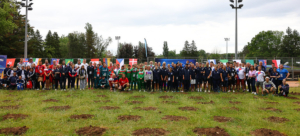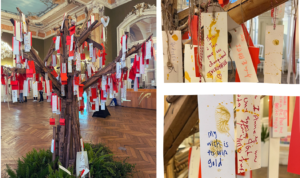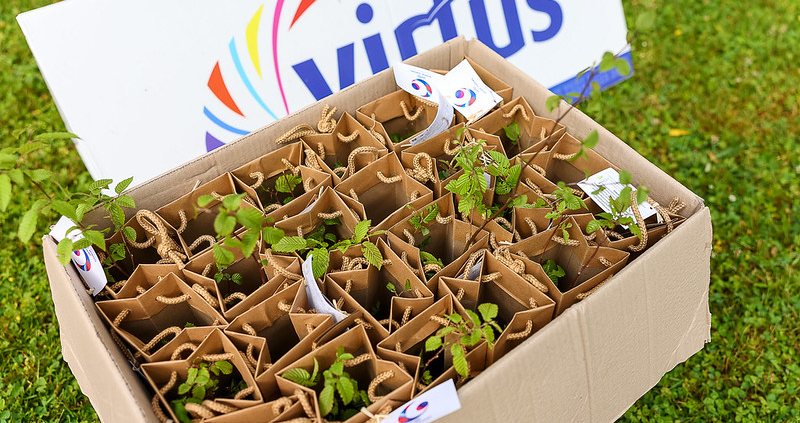Embracing Sustainability: A GG2023 Legacy Story
The Virtus Global Games 2023 (GG2023) stood as a pivotal milestone in the history of Virtus events, through the establishment of the Sustainable Development team within the Local Organising Committee (LOC). The task was to establish sustainability principles across the landscape of the various delivery commissions (volunteers, accommodation, transport, sport etc) but without placing significant burdens or extra barriers.
Comprised of a dedicated team of six individuals, each member took on specific roles aligned with their skills and aspirations. The team’s structure included a General Coordinator, International Conference Manager, Virtus Forest Manager, Eco Ambassador Manager, Clean Walk Manager, and Communication Manager. Nevertheless, their responsibilities extended beyond these defined roles, showcasing the team’s flexibility. During the event, the team collaborated with volunteers from medico-social establishments, forming two groups that assisted in waste sorting and clean-up activities.
Creation of the First Virtus Forest

A noteworthy environmental effort involved tree planting at the Virtus Forest, symbolizing unity and sustainability. Elected officials, volunteers, organizers, and athletes, came together to plant a total of 100 trees, consisting of holly and hornbeam varieties.
Palabre Tree
The Palabre Tree emerged as a poignant representation of shared dreams, spanning from personal ambitions to global hopes. The messages inscribed on its branches reflected a range of desires:
- Pursuits of gold medals.
- Including more medal events for athletes with intellectual impairments at the Paralympic Games.
- Advocacy for recognizing and integrating people with disabilities in sports.
- Various other heartfelt aspirations deeply resonate.

Palabre Tree standing tall at Virtus GG2023
Waste Management
Parallel to this arboreal dialogue, waste management garnered significant praise, particularly in the dining area. Collaborating with the AREMACS association and the city of Vichy’s administration, the team implemented efficient waste separation methods. This encompassed not only recycling initiatives but also composting around 1300 kilograms of food waste, later repurposed for city gardens. In addition, FFSA collaborated with the Food Bank and Restos du Cœur de Vichy to minimize food wastage. Excess meals were repurposed by being contributed to the Vichy Food Bank, leading to the provision of around 2,000 meals for the less fortunate.
In terms of waste management pertaining to water consumption, 2,500 reusable water bottles and transport glasses were included in the Welcome Packs for personal use. Water fountains were installed in every sports facility and reception area. During the games, a total of 652 19-litre carboys amounting to 12,388 litres of water was consumed. This translates to a reduction of 12,388 1-litre plastic bottles that would have otherwise become waste.
Clean Walk
An initiative called “Clean Walks” further underscored the team’s dedication to waste management. Participants engaged in collecting litter around sports facilities and the convention centre. The city of Vichy applauded these actions, recognizing their influence on waste sorting policies in sports events and embracing the possibility of implementing this practice in all such events in the future.
As the dust settles after GG2023, the impact of this event in Vichy, France reverberates on various fronts. Within Adapted Sports, the legacy signifies proof of impactful environmental action without overwhelming resources. Inspired by the accomplishments of the Sustainable Development team, the Regional League will incorporate waste sorting into their competition organization guidelines. Furthermore, at the Virtus level, GG2023 demonstrates the attainability of seamlessly integrating sustainability into international event planning. This signifies not only a moment but a trajectory toward greater and more enduring strides in the realm of sustainability for future events.




